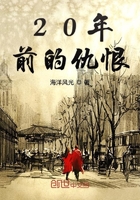I must now deal briefly with a distinct vein of incidents, that occurred between young Little's first becoming a master and the return of the Cardens from London.
Little, as a master, acted up to the philanthropic theories he had put forth when a workman.
The wet-grinders in his employ submitted to his improved plates, his paved and drained floor, and cozy fires, without a murmur or a word of thanks. By degrees they even found out they were more comfortable than other persons in their condition, and congratulated themselves upon it.
The dry-grinders consented, some of them, to profit by his improved fans. Others would not take the trouble to put the fans in gear, and would rather go on inhaling metal-dust and stone-grit.
Henry reasoned, but in vain; remonstrated, but with little success.
Then he discharged a couple: they retired with mien of martyrs; and their successors were admitted on a written agreement that left them no option. The fan triumphed.
The file-cutters were more troublesome; they clung to death and disease, like limpets to established rocks; they would not try any other bed than bare lead, and they would not wash at the taps Little had provided, and they would smuggle in dinners and eat with poisoned hands.
Little reasoned, and remonstrated, but with such very trifling success, that, at last, he had to put down the iron heel; he gave the file-cutters a printed card, with warning to leave on one side, and his reasons on the other.
In twenty-four hours he received a polite remonstrance from the secretary of the File-Cutters' Union.
He replied that the men could remain, if they would sign an agreement to forego certain suicidal practices, and to pay fines in case of disobedience; said fines to be deducted from their earnings.
Then the secretary suggested a conference at the "Cutlers' Arms."
Little assented: and there was a hot argument. The father of all file-cutters objected to tyranny and innovation: Little maintained that Innovation was nearly always Improvement--the world being silly--and was manifestly improvement in the case under consideration. He said also he was merely doing what the Union itself ought to do: protecting the life of Union men who were too childish and wrong-headed to protect it themselves.
"We prefer a short life and a merry one, Mr. Little," said the father of all file-cutters.
"A life of disease is not a merry one: slow poisoning is not a pleasant way of living, but a miserable way of dying. None but the healthy are happy. Many a Croesus would give half his fortune for a poor man's stomach; yet you want your cutlers to be sick men all their days, and not gain a shilling by it. Man alive, I am not trying to lower their wages."
"Ay, but you are going the way to do it."
"How do you make that out?"
"The trade is full already; and, if you force the men to live to threescore and ten, you will overcrowd it so, they will come to starvation wages."
Little was staggered at this thunderbolt of logic, and digested the matter in silence for a moment. Then he remembered something that had fallen from Dr. Amboyne; and he turned to Grotait. "What do you say to that, sir? would you grind Death's scythe for him (at the list price) to thin the labor market?"
Grotait hesitated for once. In his heart he went with the file-cutter: but his understanding encumbered him.
"Starvation," said he, "is as miserable a death as poisoning. But why make a large question out of a small one, with rushing into generalities? I really think you might let Mr. Little settle this matter with the individual workmen. He has got a little factory, and a little crochet; he chooses to lengthen the lives of six file-cutters. He says to them, 'My money is my own, and I'll give you so much of it, in return for so much work plus so much washing and other novelties.' The question is, does his pay cover the new labor of washing, etc., as well as the old?"
"Mr. Grotait, I pay the highest price that is going."
"In that case, I think the Unions are not bound to recognize the discussion. Mr. Little, I have some other reasons to lay before my good friend here, and I hope to convince him. Now, there's a little party of us going to dine to-morrow at 'Savage's Hotel,' up by the new reservoir; give us the pleasure of your company, will you? and, by that time, perhaps I may have smoothed this little matter for you." Little thanked him, accepted the invitation, and left the pair of secretaries together.
When he was gone, Grotait represented that public opinion would go with Little on this question; and the outrages he had sustained would be all ripped up by the Hillsborough Liberal, and the two topics combined in an ugly way; and all for what?--to thwart a good-hearted young fellow in a philanthropical crotchet, which, after all, did him honor, and would never be imitated by any other master in Hillsborough. And so, for once, this Machiavel sided with Henry, not from the purest motives, yet, mind you, not without a certain mixture of right feeling and humanity.
On the Sunday Henry dined with him and his party, at "Savage's Hotel," and the said dinner rather surprised Henry; the meats were ******, but of good quality, and the wines, which were all brought out by Grotait, were excellent. That Old Saw, who retailed ale and spirits to his customers, would serve nothing less to his guests than champagne and burgundy. And, if the cheer was generous, the host was admirable; he showed, at the head of his genial board, those qualities which, coupled with his fanaticism, had made him the Doge of the Hillsborough trades. He was primed on every subject that could interest his guests, and knew something about nearly everything else. He kept the ball always going, but did not monologuize, except when he was appealed to as a judge, and then did it with a mellow grace that no man can learn without Nature's aid.
There is no society, however distinguished, in which Grotait would not have been accepted as a polished and admirable converser.















